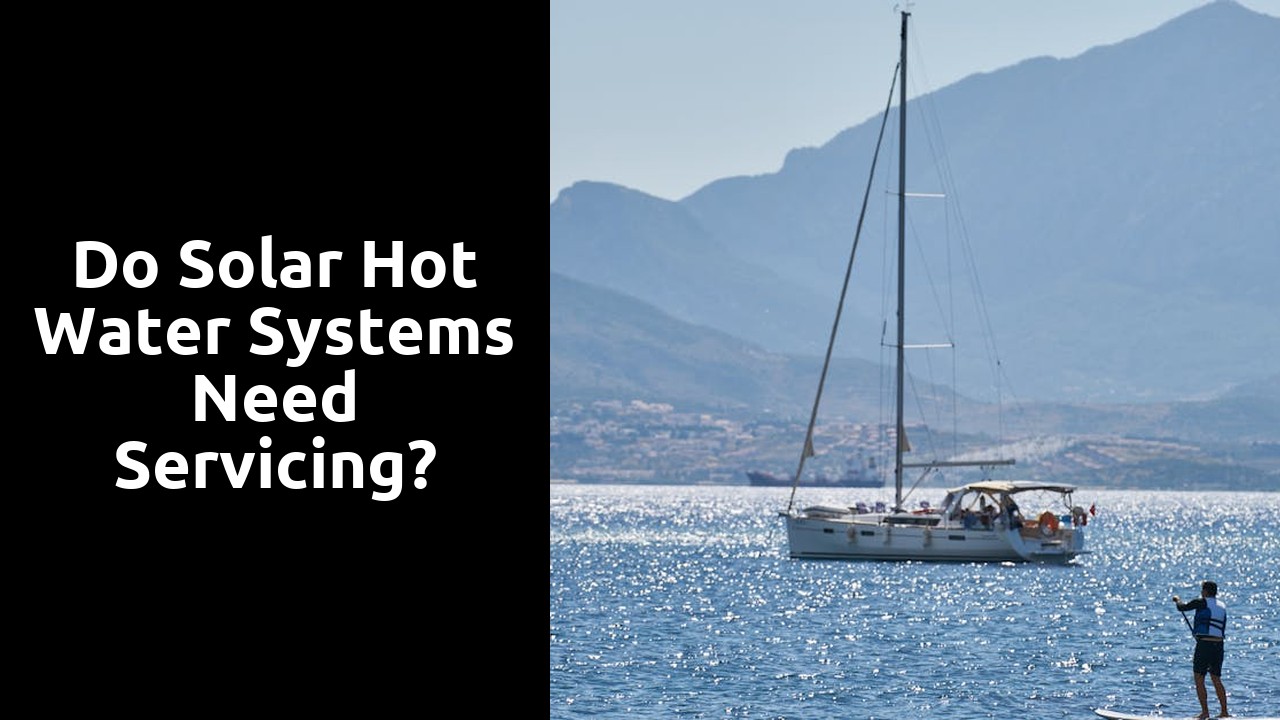
Table Of Contents
Inspecting the storage tank condition
Inspecting the storage tank condition for a solar hot water system is a crucial step in ensuring its efficiency and longevity. Regular maintenance and inspections help to identify any potential issues before they escalate into costly repairs. Begin by visually examining the exterior of the tank for signs of rust, corrosion, or leaks. Additionally, check the insulation around the tank to ensure it is intact and providing adequate protection against heat loss. It's important to conduct these inspections at least once a year to keep the system running optimally.
When inspecting the storage tank of a solar hot water system, also assess the condition of the sacrificial anode rod within the tank. The anode rod plays a vital role in protecting the tank from corrosion by attracting corrosive elements. If the rod is significantly corroded, it needs to be replaced promptly to maintain the tank's integrity. Ensure any replacements are made with the correct type of anode rod to suit the specific water conditions in your area. Regularly checking and replacing the sacrificial anode rod will help extend the life of the storage tank and prevent costly repairs down the track.
Draining and flushing out sediment buildup
After inspecting the storage tank conditions, the next step in conducting Solar Hot Water System Inspections is draining and flushing out any accumulated sediment buildup. Sediment, comprised mainly of minerals and debris, can collect at the bottom of the tank over time. This buildup can reduce the system's efficiency by insulating the water from the heating elements and hindering heat transfer. Moreover, sediment can also lead to corrosion and damage to the tank if left unattended. Therefore, it is crucial to regularly drain and flush the system to maintain its optimal performance.
Draining the tank involves shutting off the water supply and connecting a hose to the drain valve to release the water and sediment. It is recommended to conduct this process at least once a year to prevent any issues caused by sediment buildup. By thoroughly flushing out the sediment, you can ensure that the solar hot water system operates efficiently and effectively, providing hot water consistently. Regular maintenance of this kind helps to extend the lifespan of the system and prevent costly repairs in the future.
Testing the backup heating system
When it comes to Solar Hot Water System Inspections, testing the backup heating system is a crucial step to ensure the overall functionality of the system. The backup heating system typically consists of a gas or electric booster element that kicks in during periods of low sunlight or high demand for hot water. To test the backup heating system, you should first verify that the unit is receiving power and functioning properly. You can do this by turning on the system and checking if the water temperature increases accordingly.
Furthermore, it is advisable to monitor the backup heating system's performance over a few days to ensure consistency and reliability. If you notice any fluctuations in water temperature or irregularities in the backup heating system's operation, it may indicate a potential issue that needs to be addressed promptly. Regular testing and maintenance of the backup heating system can help prevent unexpected breakdowns and ensure that your solar hot water system continues to operate efficiently.
Ensuring functionality during low sunlight periods
When conducting Solar Hot Water System Inspections, it is essential to verify that the system functions effectively even during periods of low sunlight. To ensure the system's functionality, consider installing a solar collector that can still harness energy from diffused sunlight. This allows the system to operate efficiently, even on cloudy days or during early mornings and late afternoons when sunlight intensity is reduced. By incorporating this feature, the system can provide hot water consistently, regardless of varying sunlight conditions. Regularly testing the system under low sunlight periods will help in identifying any potential issues and ensuring that the system operates optimally throughout the year.
Moreover, monitoring the system's performance during different seasons is crucial in determining its reliability under varying sunlight availability. By conducting periodic checks during winter or overcast days, you can assess the system's ability to generate hot water efficiently under challenging conditions. This proactive approach enables you to address any issues promptly and optimize the system's performance to meet your hot water requirements consistently. Ensuring the functionality of the solar hot water system during low sunlight periods enhances its overall efficiency and reliability, contributing to long-term sustainability and cost-effectiveness.
Assessing the overall system pressure
Assessing the overall system pressure is a crucial step in conducting thorough Solar Hot Water System Inspections. It is essential to ensure that the pressure within the system is at the optimal level to guarantee efficient operation. Any deviations from the recommended pressure range could indicate potential issues that may affect the performance of the system. By monitoring and assessing the system pressure regularly, homeowners can identify and address any concerns promptly, preventing further complications that could result in costly repairs.
Maintaining the correct pressure in the solar hot water system is vital for its longevity and effectiveness. Low pressure may lead to reduced water flow and inadequate heating, affecting the overall performance of the system. On the other hand, high pressure can put unnecessary strain on the components, potentially causing leaks or other malfunctions. Regularly monitoring and adjusting the system pressure as needed will help ensure that the solar hot water system operates efficiently, providing reliable hot water while extending its lifespan.What is the best hot water system if you have solar panels?
Addressing any fluctuations or irregularities
How can I ensure the backup heating system of my solar hot water system is working properly?
Regularly testing the backup heating system, especially during low sunlight periods, can help ensure it is functioning correctly and ready to provide hot water when needed.
